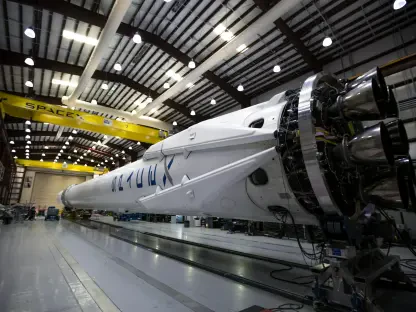In an era where manufacturing is undergoing a digital transformation at an unprecedented pace, the integration of cutting-edge technologies like 5G is proving to be a game-changer for industrial operations across the United States. Private 5G networks, in particular, are emerging as a cornerstone for enhancing efficiency, automation, and connectivity in large-scale facilities. At the forefront of this technological shift is Ericsson, a global telecommunications leader making significant strides by deploying tailored 5G solutions for prominent manufacturers. By addressing critical operational challenges, such as unreliable connectivity and the need for real-time data processing, Ericsson is helping to redefine how factories operate in a highly competitive landscape. This push not only highlights the transformative potential of 5G but also underscores the growing importance of private networks in meeting the specific demands of modern industrial environments, setting a new standard for productivity and innovation.
Transforming Factories with Private 5G Networks
Ericsson’s strategic focus on private 5G networks is reshaping the manufacturing sector by providing robust digital infrastructure tailored to the unique needs of large facilities. A notable example is the deployment at Hitachi Rail’s expansive 307,000-square-foot plant in Hagerstown, Maryland, where the network supports the production of up to 20 rail cars monthly. This private 5G setup acts as a digital backbone, enabling advanced applications like predictive maintenance, automated quality inspections, and digital twins to optimize operations. Beyond this project, Ericsson has extended similar solutions to other major U.S. manufacturers, including LG Electronics in Tennessee and Ford’s Rouge Electric Vehicle Center in Michigan. These implementations often tackle specific pain points, such as replacing unreliable Wi-Fi systems for automated guided vehicles and autonomous mobile robots, ensuring seamless connectivity across sprawling factory floors. Through these efforts, Ericsson is establishing itself as a key player in driving industrial automation and operational reliability.
Competing in a Dynamic 5G Market Landscape
While Ericsson is making impressive inroads, the competitive landscape for private 5G networks in manufacturing remains intense, with Nokia holding a dominant position as the leading vendor in the Western world. Industry analysts note that Ericsson is strategically targeting larger factories to bolster its market share, as seen in deployments at facilities like Tesla’s Gigafactory Texas and Toyota Material Handling’s complex in Indiana. However, Nokia’s extensive projects, such as the massive network at Hyundai Motor Group’s vehicle plant in Georgia, highlight the challenge Ericsson faces in closing the gap. Despite this, Ericsson’s growing portfolio of successful implementations demonstrates a commitment to addressing nuanced operational demands with scalable solutions. Looking back, the strides made through partnerships with prominent manufacturers reflect a determined push to enhance automation and efficiency. Moving forward, the focus should be on continuing to innovate and expand these tailored 5G solutions to meet evolving industry needs, potentially reshaping the competitive dynamics in the years ahead.









